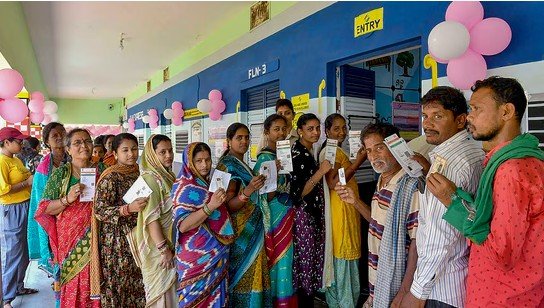Odisha is preparing to conduct its first Special Intensive Revision (SIR) of electoral rolls since 2002, a move that has triggered political uproar similar to Bihar. While the BJP-led state government defends the exercise as a much-needed reform, opposition parties have raised concerns over possible voter exclusions, setting the stage for a heated political battle ahead of future polls.
What is SIR and How It Differs from Summary Revision?
The Special Intensive Revision involves a door-to-door verification drive by Booth Level Officers (BLOs) to update voter rolls thoroughly. Unlike the annual Summary Revision, where citizens voluntarily add or remove names with supporting documents, the SIR makes verification mandatory on the ground. Officials argue that such a comprehensive exercise has not been undertaken in over two decades, and Bihar’s experience shows how it can even become an election issue.
Opposition Raises Alarm Over “Vote Theft”
Congress leader Bhakta Das has slammed the move, alleging that it could enable targeted deletions based on caste or religion. The party has accused the government of attempting “vote theft” and announced a protest outside the Chief Electoral Officer’s office on September 4. Party spokespersons warn that, as in Bihar, disenfranchisement of vulnerable sections could cause unrest in voting districts and fuel pre-poll tensions.
BJD’s Indecision in the Midst of Controversy
The Biju Janata Dal (BJD), which ruled Odisha for over two decades, has struggled to take a clear position on SIR. While leaders insist they stand by voters’ rights, critics argue that the party’s vague responses signal political indecision. One BJD leader told journalists, “We have always been pro-people on electoral matters,” without specifying support or opposition to the new exercise.
BJP Defends SIR as Essential Reform
The ruling BJP has hit back strongly, branding opposition criticism as “anti-Odisha and anti-national.” The party maintains that the exercise is vital to strengthen voter roll accuracy, curb discrepancies, and prevent electoral manipulation.
How the SIR Process Will Work
Under the revision drive, BLOs will conduct house-to-house verification of voter details using documents such as Aadhaar, birth certificates, matriculation records, passports, caste or residence certificates, and other government IDs. The exercise is scheduled to conclude by January 7, 2026, with the final draft voter list being published thereafter.
Administrative Preparations in Full Swing
To ensure smooth implementation, the state government has appointed District Electoral Officers (DEOs), Electoral Registration Officers (EROs), and Assistant EROs to monitor the process. Chief Secretary Manoj Ahuja has instructed district collectors to remain vigilant and resolve any glitches immediately.
A Reform with Far-Reaching Political Implications
By launching SIR, Odisha joins states like Bihar in undertaking electoral reforms that could significantly alter voter demographics. With upcoming panchayat, assembly, and general elections on the horizon, the controversy surrounding voter roll revisions is poised to become a defining political issue in the state.



Comments are closed.